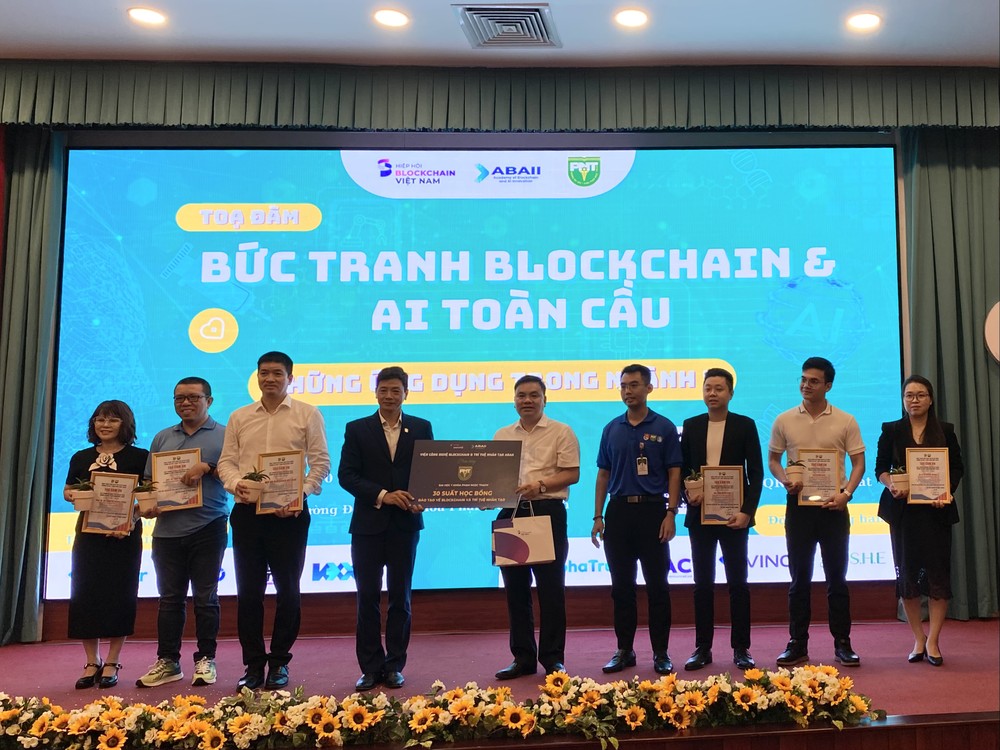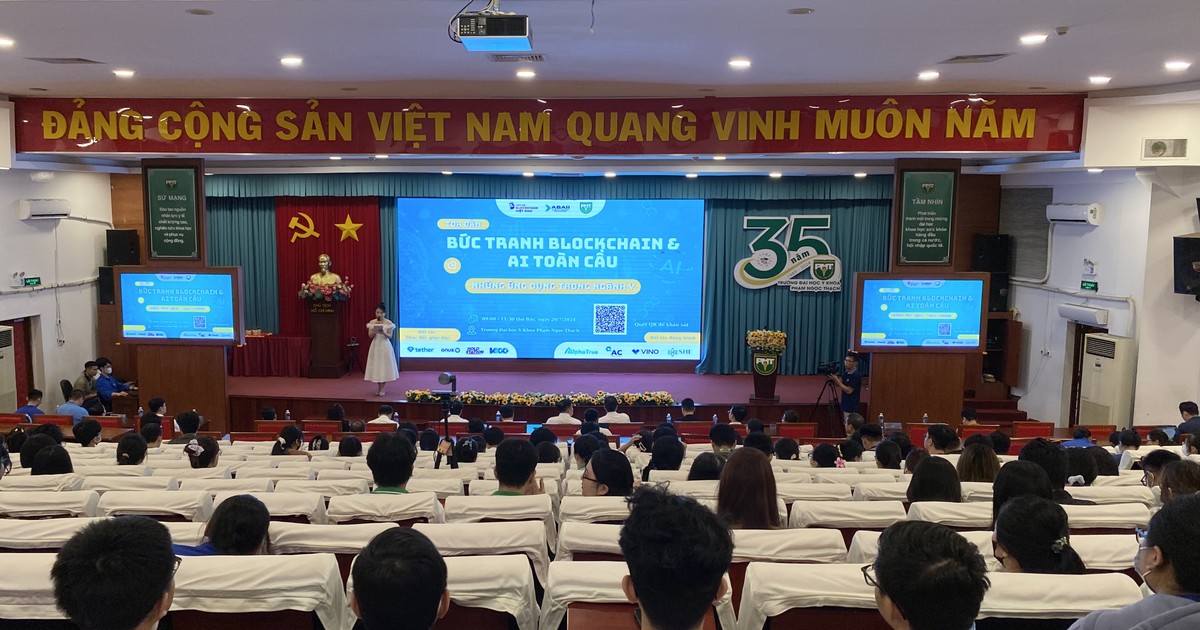A seminar on Blockchain and AI applications in the healthcare sector was held for more than 400 students and lecturers at Pham Ngoc Thach University of Medicine.
Vietnam Blockchain Association, ABAII Institute of Blockchain Technology and Artificial Intelligence in collaboration with Pham Ngoc Thach University of Medicine in Ho Chi Minh City organized a discussion with the topic ‘Global Blockchain and AI Picture – Applications in the medical industry’ for more than 400 students and lecturers at Pham Ngoc Thach University of Medicine.
The application of Blockchain and AI in the healthcare sector is expected to be a groundbreaking step in human healthcare. Nowadays, AI can assist doctors in diagnosing diseases, predicting health risks, supporting treatment, managing medical records, developing drugs, monitoring medical supply chains, and aiding in patient care.
Furthermore, the intersection of AI and advanced technology solutions is transforming community healthcare. The synergy between AI and biotechnology opens up numerous applications, accelerating the development of new drug formulations, reducing costs, and enhancing research outcomes.
According to Deputy Director Dao Trung Thanh of the ABAII Institute, AI is profoundly reshaping various fields, including the economy, healthcare, culture, and education. In the healthcare sector, AI can reduce treatment costs by up to 50 percent and improve health examination results by up to 40 percent.
Notably, a study conducted by the University of Hawaii found that deploying AI technology significantly enhances the accuracy of breast cancer risk prediction. AI algorithms, trained on millions of medical images, outperform the capabilities of X-ray doctors. Moreover, healthcare facilities can reuse these algorithms without incurring additional costs, apart from hardware.
During the seminar, Associate Professor Tran Thi Khanh Tuong, Head of the Department of Internal Medicine at Pham Ngoc Thach University of Medicine, shared insights on how AI and Blockchain can positively impact the healthcare industry. These technologies can enhance disease diagnosis, manage medical records, control drug origins, and streamline circulation processes.

Therefore, the healthcare sector is keenly interested in exploring these applications and is researching suitable training programs to equip students with knowledge and skills in this rapidly evolving technological landscape.
This seminar marked the eighth event in the Unitour series, which aims to promote Blockchain and AI across universities nationwide. As part of this initiative, the association awarded 30 scholarships to students and faculty members at Pham Ngoc Thach University of Medicine. These scholarships cover training courses focused on foundational AI, Blockchain, and coding knowledge.
According to the Ministry of Health, the use of AI in healthcare is a global trend. The Vietnamese healthcare sector is strongly adopting AI technology to improve and enhance patient care activities. AI helps enhance diagnostic capabilities, even for complex and rare diseases.
However, it’s important to note that AI cannot replace doctors. Instead, algorithms and data synthesis capabilities allow devices to assist physicians in determining appropriate treatment options for each patient. Additionally, AI aids in managing health records and databases, monitoring health, providing advice, and managing pharmaceuticals.
By Bui Tuan – Translated By Dan Thuy
